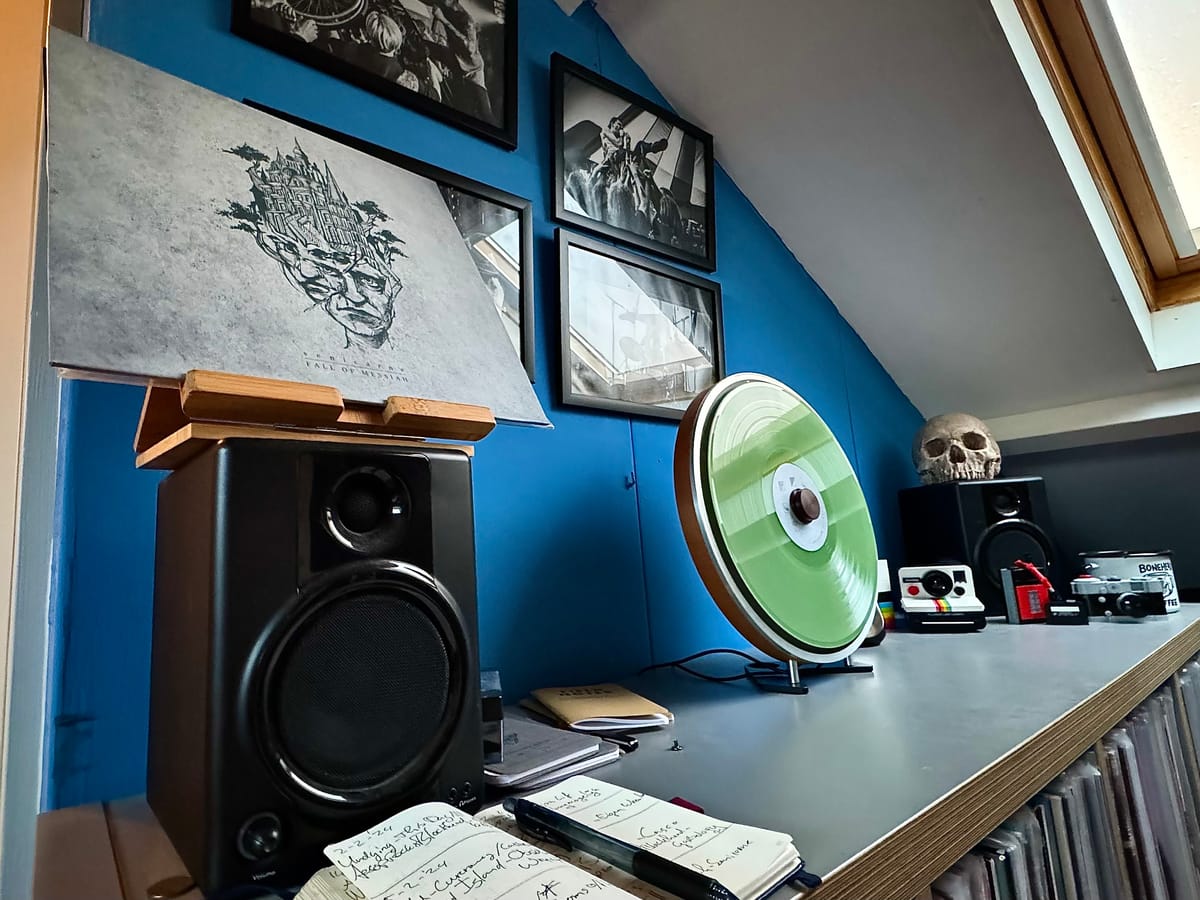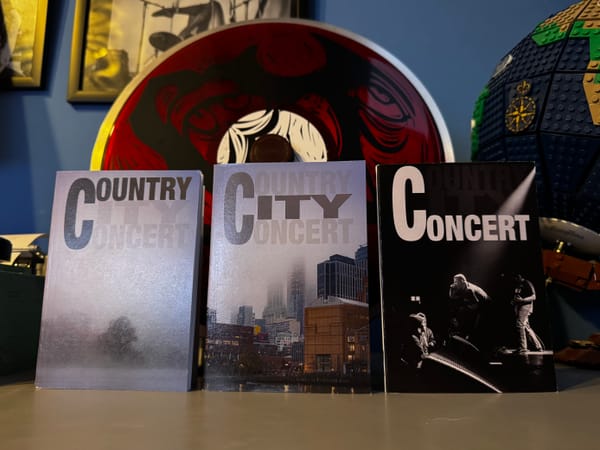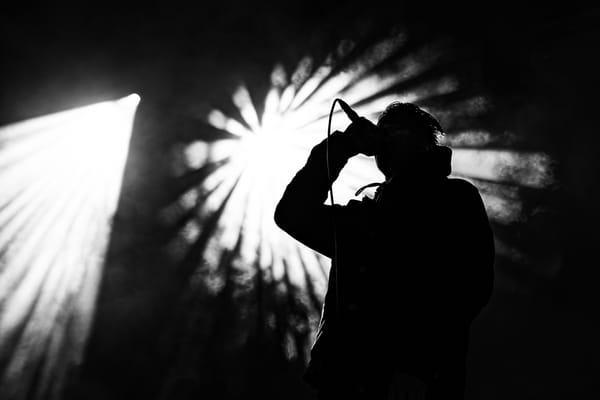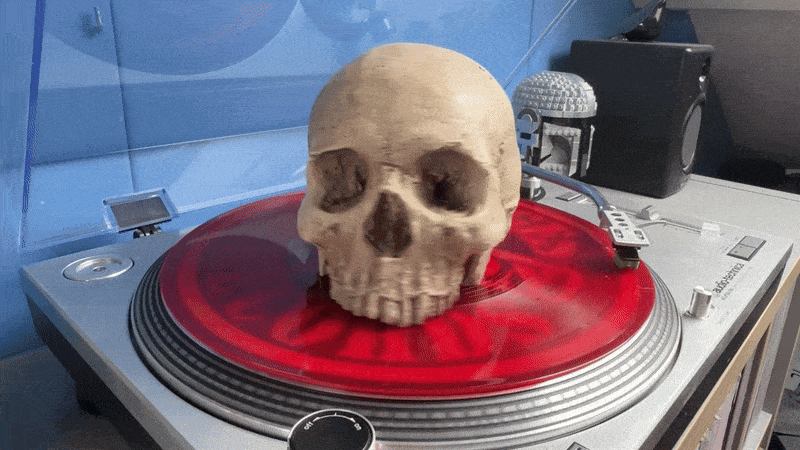Physical Media 'Till I Die

A curio arrived in the mail the other day: a 12" vinyl version of metalcore pioneers Undying’s 1999 EP This Day All Gods Die (available from Holy Mountain Printing still). A curio, because back in the day, the band only released it as a CD, with vinyl not quite having seen the resurgence it had in the past decade.
It should hopefully not come as a surprise that I prefer vinyl records above most other forms of media, with perhaps minidisc a close but increasingly impractical second (there’s just something very cyberpunk about those tiny CDs). While I acknowledge the many benefits of digital – both locally stored files and streaming – I prefer the physical sensation of putting the needle to the record.
Please don’t assume too much from this. An audiophile I am not: not only can I hardly distinguish a high bitrate mp3 from a CD recording, I could not bring myself to care too much about this difference in the first place. Enjoying a musical education with punk records recorded in squat houses on ten dollar tape machines, one learns to not put too much import on sound quality, but rather on the art on display.
Instead, the affinity is twofold. For one, the physical connection between putting a needle on a record, seeing the vinyl platter revolve as the music plays, having to flip the record halfway through – simple actions, but these prompt the music to come into existence different from hitting a Play button and just forgetting about it. A ritual, let’s say.
Of course, I cannot exclude the somewhat depressing possibility this is merely nostalgia masking as meaning – it is a potent drug after all. A cynical one as well, one that stands in the way of self-development and self-enrichment, and one that only when it is turned on its head can actually provide meaning.
This is a matter for another missive.
Ritual is important. At first glance it may appear archaic in modern context, having its religious connotations, but of course outside of this context we still perform our daily rituals en masse.
Ritual is the precursor to meaning, a repeated physical action meant to conjure something non-physical. And what beauty music conjures! Love, sadness, anger, contentment – the gamut. How strange and wonderful, then, that a spinning physical disc can make true all this.
(Slight digression, but it is related: I can’t have been the only one to, as a young person, took a freshly bought CD or record home and literally just sat by the stereo playing it, lyrics sheet in hand reading along. Right? I can’t imagine myself doing it anymore, as rotten as my brain has become in its constant need for mindless stimulation, but what a way to experience music! Perhaps I should endeavour to do it more once again.)
Apart from ritual, physical media offers a certain measure of security and comfort. If you are reading this, there is a very real chance you are a lover of niche media of a certain kind. Most likely music, but perhaps other forms of expression as well.
As I would hope you know, niche media does not tend to make tons of money. In fact, it usually has the hardest time breaking even, even. An awful portent for the gatekeepers of the platforms we so casually have allowed into our lives these days in our pursuit of endless offered content.
Try to find any old arthouse movie online, I dare you. Even Mubi or Criterion will fall short under close scrutiny, as much beauty as they can offer still. Music streaming platforms thankfully offer a slightly more open artist entrance policy, with most any artist being able to find an avenue to host their work. Of course, if the music dates from the pre-streaming era, it requires a proactive musician or label runner to still keep the archives up-to-date, and here streaming becomes an issue, with reams of music history being left in the dust as it’s not profitable enough to make an archival function feasible.
This is understood – these services are not the keepers of our history, nor do they pretend to be. And yet we find most people treating music with the callous detachment and disinterest needed to have turned streaming into the de facto way to enjoy music.
But I don’t want to rely on these services for my emotional and spiritual nourishment. Perhaps I am alone in this, but more often than not, listening to a record is prompted by a nagging feeling inside of me, an itch. An itch that can only be scratched by a very particular song or artist.
Thus, I collect. It is an activity I have split feelings on. Fetishisation of plastic discs is a real danger, with a community that urges us to keep buying because this version has a silly new colour and that one comes with a silkscreened sleeve. It’s a very silly hobby, indeed.
Regardless, it’s nice to have an extensive collection of different kinds of music. And while physical media certainly is not immune from degradation – the opposite, in fact – at least now I have control over its storage and care, and perhaps that’s more what I’m looking for anyway: control.
Slightly ominous, written down thusly, I suppose, but this is more about me not wanting my mental state – which hinges so closely on my experience of music, the experience of my mortality salience not being buffered – be dictated by what is and isn’t available at any particular moment in time when the need arises.
And so, if I should want to emotionally recall that Undying show me and my friend Robert set up in the early 2000’s in a small 100-person venue in Groningen – a cheap package deal with a then-not-that-well-known Walls of Jericho, if I recall correctly – now I merely need find This Day All Gods Die in my collection and put it on my record player, streaming availability be damned.




